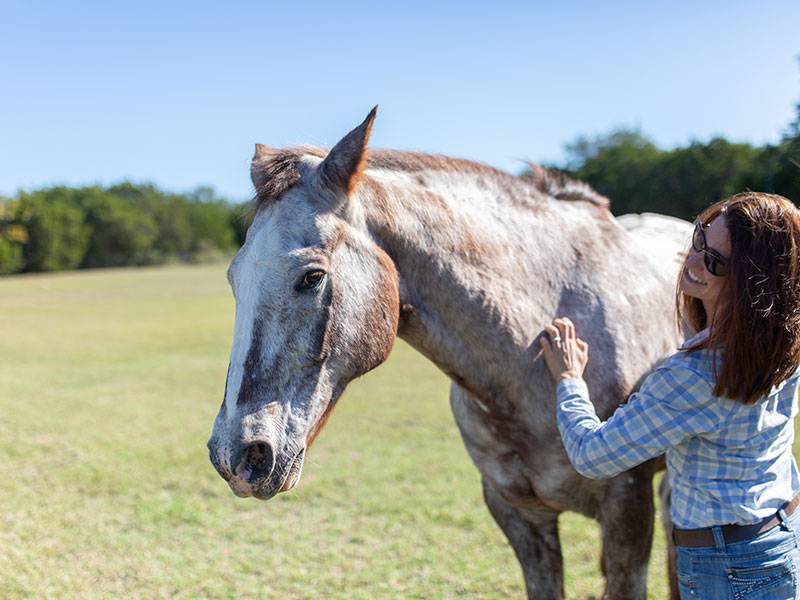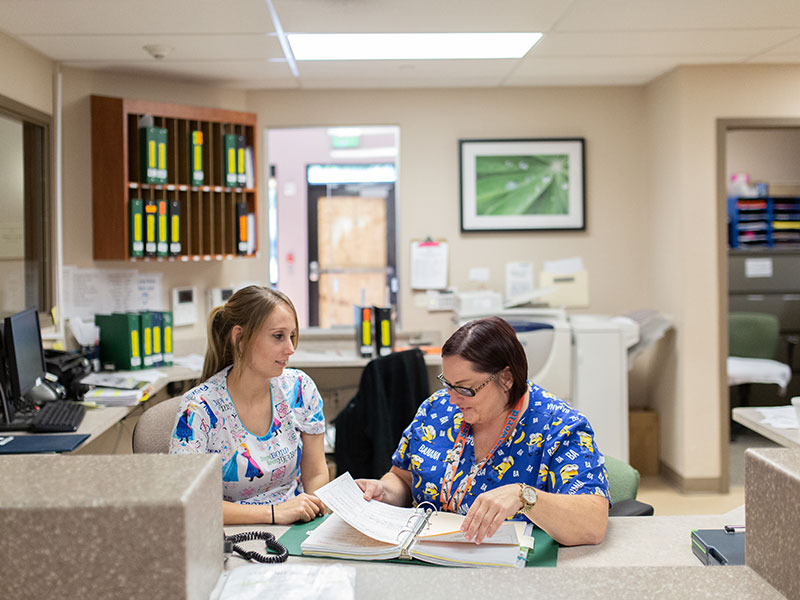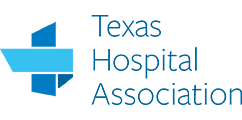Cedar Crest Hospital & Residential Treatment Center helps individuals who are struggling with OCD find long-term recovery. Located in Belton, TX, Cedar Crest is the leader in mental health care.
OCD Treatment
Learn more about OCD treatment at Cedar Crest Hospital & Residential Treatment Center in Belton, TX
Like many individuals, you have most likely on occasion double-checked things, such as going back to make sure the curling iron is unplugged or the oven is turned off before leaving the house. However, for someone with obsessive-compulsive disorder (OCD), the need to repeatedly check things or perform certain routines and rituals over and over before going about his or her day is impossible to ignore. These individuals will also experience frequent and upsetting thoughts, known as obsessions, which cause them to have an overwhelming urge to repeat certain behaviors, or compulsions, in order to experience relief from their distress. The compulsive behaviors can begin to consume most of a person’s time, often becoming a daily routine. Obsessive-compulsive disorder is a life-long disorder that can, at times, be so severe and time-consuming that it becomes disabling.
While right now you may feel like there is no way to get the symptoms of your disorder under control, there is hope for the future. For over 30 years the compassionate staff at Cedar Crest, a hospital for OCD treatment in Belton, has successfully helped thousands of children, teens, adults, and older adults learn to manage symptoms of various mental illnesses. We recognize that OCD frequently occurs alongside other mental health disorders, so if you are suffering from an illness such as depression or bipolar disorder, and are simultaneously struggling with the symptoms of OCD, we can provide the individualized care you need. We understand how debilitating this illness can be, and we want to help you get your life back.
How to Help a Loved One
Helping a loved one get treatment for OCD
Living with a loved one who has OCD can be both frustrating and exhausting. It is not uncommon for family members and friends to become involved in some of the rituals that their loved one engages in, and, in some circumstances, they may even have to take care of daily activities that their loved one is unable to do as a result of his or her OCD symptoms. Unfortunately, this can lead to distress and disruption among family members. Here are some things that you, as a concerned friend or family member, can do to help your loved one through this difficult time:
- Educate yourself about OCD: When you are more informed about this disorder, it is easier to provide your loved one with support.
- Offer support and understanding: Make sure that you clearly communicate with your loved one that you know the difference between his or her OCD symptoms and who he or she is as a person. This will help lessen your loved one’s feelings of guilt and shame. Encourage your loved one to talk about the disorder and try to be patient with him or her while keeping a non-judgmental attitude.
- Encourage your loved one to get professional help: Help your loved one locate a therapist and offer to get involved in the treatment process.
- Don’t reinforce obsessive-compulsive behaviors: Do not get involved in your loved one’s OCD behaviors. While it may seem like helping your loved one is the only way to reduce his or her frustration, it is only promoting reliance on you and supporting the negative behaviors themselves.
- Get help for yourself: Over time, having a loved one who is dealing with the symptoms of OCD and additional mental illness symptoms can wear on you, so it is important for you to maintain your connections and support among your extended family and friends. If needed, seek out a counselor or other community supports where you can process your emotions about the OCD.
There are many resources available that can help you to further understand this disorder and give you more specific details on what you can do to help your loved one.
Why Consider Treatment
Why consider treatment for OCD at Cedar Crest Hospital & Residential Treatment Center in Belton, TX
While OCD treatment does not cure this disorder, it can help individuals learn to manage their OCD symptoms, allowing them to regain control over their lives. However, if left untreated, OCD can cause a number of additional problems in a person’s life. If the obsessions and compulsions are severe enough, they can prevent someone from being able to function at work, attend school, or engage in other social activities. Additionally, without treatment, symptoms are likely to worsen, and the symptoms of co-occurring disorders, such as anxiety and depression, may worsen as well. The earlier you seek treatment for OCD, the better the outcome will be. Early treatment can help reduce symptoms and reduce the disruption the illness has caused in your life.
Depending on the severity of your symptoms, you may benefit from participating in an inpatient treatment program. In this type of treatment, you will be able to learn the coping skills you need to manage stress, practice tools that will assist you in controlling your symptoms, and receive medication, if necessary. In inpatient treatment, you will also benefit from having the ability to take a break from your daily life at home and place all of your focus on becoming well.
Our Philosophy
Cedar Crest Hospital & Residential Treatment Center philosophy and benefits
At Cedar Crest, an OCD treatment center in Belton, we have helped countless children, teens, adults, older adults, active duty military, and their families overcome OCD when it presents as a co-occurring concern with another mental illness. Through a number of different treatment approaches, we will help you confront the challenges in your life and learn the coping skills needed to recover. Our beautiful campus provides our patients with the ideal place to take a break from their daily routines and focus on their recovery. We’re available to you 24 hours a day, 7 days a week, and our decades of experience can be a valuable asset during your recovery.
Types of Treatment
Types of OCD treatment offered at Cedar Crest Hospital & Residential Treatment Center in Belton, TX
The main goal for your treatment throughout your stay will be to reduce symptom severity and help you reach your maximum level of functioning. Upon arriving at our treatment center, you will complete a comprehensive assessment, which will allow us to gain better insight into your presenting concerns. From that assessment, we will compile all of your information to create a personalized treatment plan that will best address your needs.
At our hospital, we do not provide care specifically for OCD on its own. However, we are fully capable of providing comprehensive care that treats the symptoms of OCD as a secondary concern. The interventions that we use may include a combination of medication management, behavioral therapies through individual and group sessions, family therapy, and a number of experiential therapies.
Medication: There are a variety of medications available that can be used to treat various mental health disorders, including the symptoms associated with OCD. The use of any medication at our treatment center, however, is determined on a case-by-case basis, and patients who are on medication will be regularly monitored.
Individual therapy: During individual therapy sessions at our hospital, you will work one-on-one with a therapist in a confidential setting where you can process through the challenges you’re facing and learn better ways of coping with and managing your symptoms.
Group therapy: Group therapy sessions at our treatment center can be extremely helpful for those struggling with mental illnesses, including OCD, as oftentimes these individuals feel isolated and alone. Interacting with other individuals can allow you to work on regaining your social skills, while also coming to understand that you are not alone in your struggles. Groups are held multiple times a day and focus on topics such as coping skills, life skills, medication management, or general mental health education.
Family therapy: Family involvement is a large part of the healing process at our treatment center, especially for those who have been diagnosed with OCD in addition to another mental illness. Many times this disorder can cause frustration and disruption in the family unit. Family therapy can help you all work together to resolve any presenting issues and can teach all family members how to be more supportive to one another.
At our hospital, we have learned that combining traditional therapeutic techniques with experiential methods can truly help heal the whole person, which is why we offer a number of options for experiential therapy. These alternative therapies may include:
- Yoga
- Recreational therapy
- Art therapy
- Music therapy
- Swimming pool
Continuing Care
Continuing care and levels of treatment for OCD
When you no longer require the structure of our inpatient treatment center, you will sit down with a social worker and discharge planner to discuss the continuing care plan that was started upon your arrival. Our social worker will not only provide you with information about local support services, but will also help you cope with the transition out of inpatient treatment. On the day of discharge, you will meet with each member of your treatment team so that they can ensure that you are ready to leave the inpatient setting and that you have a stable home environment to return to.
Some people opt to step down into structured outpatient treatment such as an intensive outpatient program (IOP) or a partial hospitalization program (PHP), both of which allow for recovery and treatment during the day while slowly integrating back into regular life in the evenings. Others may feel they’ve made enough progress during their stay and are ready for discharge with referrals to our traditional outpatient therapy clinic. At our treatment center, we strive to help each patient who comes to us for help long after they leave our doors.

















